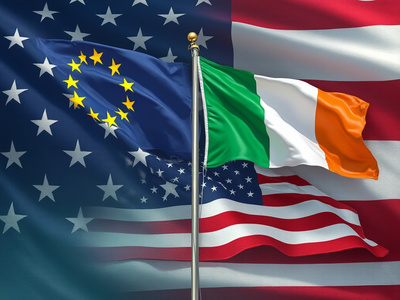EU Considers Simplification of Green Energy Laws Amid Ongoing Energy Challenges
The European Union aims to streamline its green energy legislation while addressing the complexities in energy supply and transit amid ongoing tensions in the region.
In a bid to simplify its green energy laws, the European Union is actively seeking methods to enhance legislative efficiency while grappling with energy supply issues influenced by geopolitical tensions.
EU member states are increasingly concerned about the complexities arising from current energy regulations, particularly in the context of transitioning to renewable energy sources.
Simultaneously, discussions are ongoing regarding the potential revival of the Nord Stream pipelines, which were previously damaged.
The Kremlin has indicated that Russia and the United States are engaged in talks about restarting the gas links.
However, many EU countries oppose this revival, citing legal challenges and the potential for increased dependency on Russian gas as key concerns.
Experts suggest that operationalizing the pipelines would encounter significant hurdles, even if financial backing from the U.S. were secured.
In related developments, the European Union is exploring a solution to a gas transit fee dispute involving Slovakia and Ukraine.
A proposed plan aims to allow Slovakia to recover lost transit fees through Ukrainian gas storage options, but experts express skepticism over the feasibility of this plan without substantial subsidies to support it.
Further complicating the EU's energy strategy, frontline states neighboring Russia have organized against the idea of reinstating fossil fuel imports from Moscow.
These countries argue that re-engaging with Russian energy sources would not address the longer-term sustainability and security goals of the EU's energy policy.
In addition to these developments, the EU intends to maintain mandatory gas-filling targets despite resistance from several member states, including Germany, which advocates for a more flexible approach.
Critics within these states raise concerns that rigid targets could lead to increased gas prices, further complicating the EU's energy landscape as it navigates both recovery and sustainability concerns.
EU member states are increasingly concerned about the complexities arising from current energy regulations, particularly in the context of transitioning to renewable energy sources.
Simultaneously, discussions are ongoing regarding the potential revival of the Nord Stream pipelines, which were previously damaged.
The Kremlin has indicated that Russia and the United States are engaged in talks about restarting the gas links.
However, many EU countries oppose this revival, citing legal challenges and the potential for increased dependency on Russian gas as key concerns.
Experts suggest that operationalizing the pipelines would encounter significant hurdles, even if financial backing from the U.S. were secured.
In related developments, the European Union is exploring a solution to a gas transit fee dispute involving Slovakia and Ukraine.
A proposed plan aims to allow Slovakia to recover lost transit fees through Ukrainian gas storage options, but experts express skepticism over the feasibility of this plan without substantial subsidies to support it.
Further complicating the EU's energy strategy, frontline states neighboring Russia have organized against the idea of reinstating fossil fuel imports from Moscow.
These countries argue that re-engaging with Russian energy sources would not address the longer-term sustainability and security goals of the EU's energy policy.
In addition to these developments, the EU intends to maintain mandatory gas-filling targets despite resistance from several member states, including Germany, which advocates for a more flexible approach.
Critics within these states raise concerns that rigid targets could lead to increased gas prices, further complicating the EU's energy landscape as it navigates both recovery and sustainability concerns.











